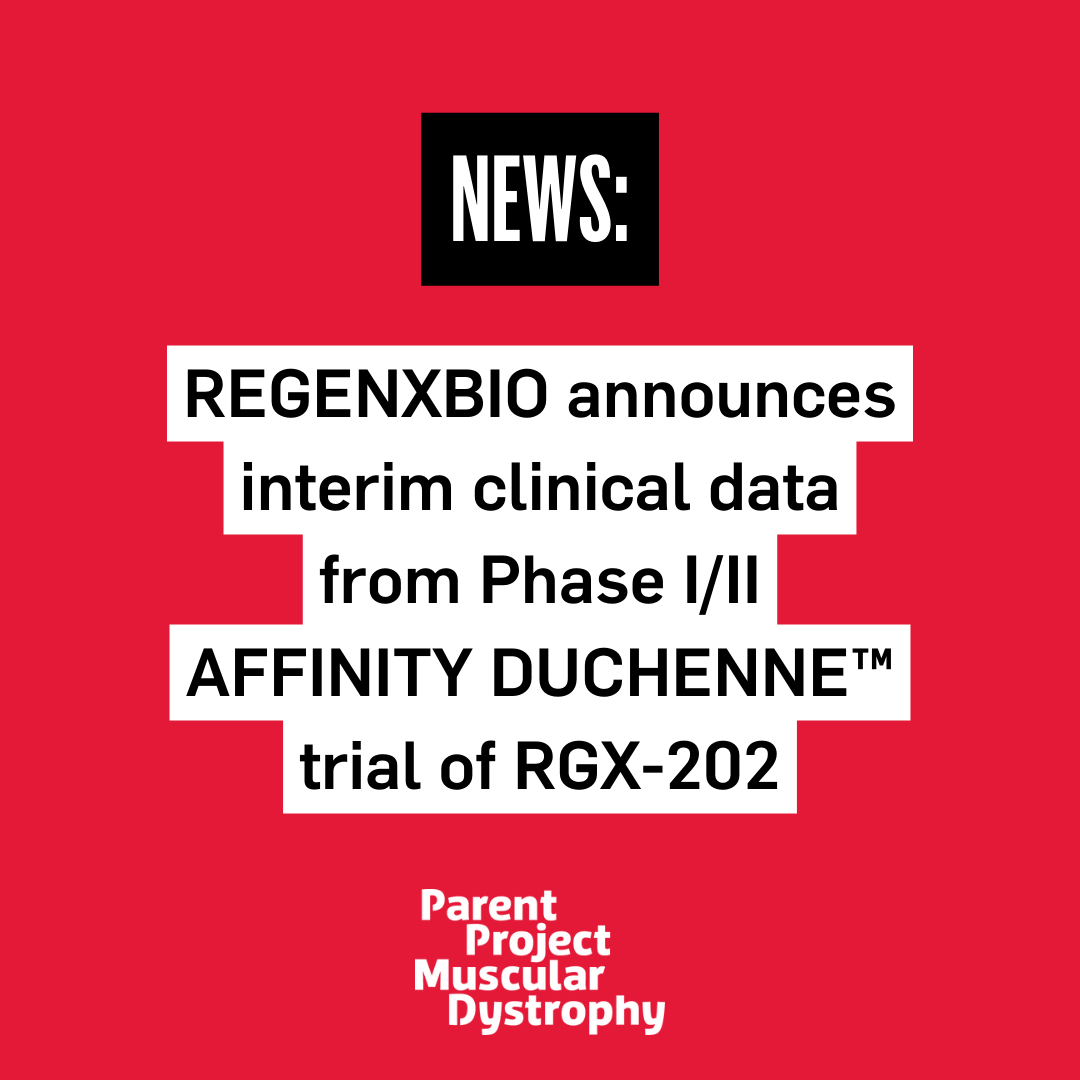
REGENXBIO Inc. has announced additional interim safety data and initial efficacy data from the Phase I/II AFFINITY DUCHENNE™ trial of RGX-202, an investigational gene therapy product for the potential treatment of Duchenne. RGX-202 utilizes a novel adeno-associated virus (AAV8) to transport a shortened version of the dystrophin gene (micro-dystrophin) that may provide benefit in place of the missing full-length dystrophin protein.
The company shares that RGX-202 continues to be well-tolerated in three patients from dose level 1 (1x10e14 genome copies (GC)/kg). Additionally, initial biomarker data in two patients who completed three-month assessment demonstrate robust microdystrophin expression with localization to the muscle cell membrane.
REGENXBIO expects to dose patients at dose level 2 (2x10e14 GC/kg) in the Phase I/II AFFINITY DUCHENNE trial by the end of 2023. The company also provided an update on a newly completed preclinical efficacy study evaluating RGX-202 manufactured using REGENXBIO’s NAVXpress™ commercial-ready process at both dose levels. REGENXBIO expects to share initial strength and functional assessment data for both dose levels, as well as make a pivotal dose determination and initiate a pivotal program for RGX-202, in 2024.
Read REGENXBIO’s press release here.
REGENXBIO’s community letter:
Dear Duchenne Community,
We are pleased to share interim clinical data from our Phase I/II AFFINITY DUCHENNETM study of RGX-202, our investigational gene therapy for the treatment of Duchenne muscular dystrophy (Duchenne). REGENXBIO shared interim clinical data at the World Muscle Society Annual Conference, October 3-7, 2023, in Charleston, South Carolina. Please find the news release here and a summary below.
Data are from three patients dosed with RGX-202 at Dose Level 1.
SAFTEY DATA
- As of September 28, 2023 (the data cut date), RGX-202 was reported to be well tolerated with no serious adverse events among the three patients.
- At the time of the data cut date, the follow-up time ranged from 3 weeks to more than five months after gene therapy administration.
- Two patients who have reached or surpassed the three-month follow-up have completed the immunosuppression regimen per study protocol.
BIOMARKER DATA
- Initial biomarker data from two boys who completed 3-month study assessments showed readily detectable RGX-202 microdystrophin levels from bicep muscle biopsies taken at 3 months after RGX-202 administration.
- A reduction from baseline in serum creatinine kinase (CK) levels was also observed at ten weeks. Elevated CK levels are associated with muscle injury and are uniformly elevated in boys with Duchenne.
PROGRAM NEXT STEPS
- REGENXBIO expects to dose boys at the next dose level (Dose Level 2) in the AFFINITY DUCHENNE study by the end of 2023.
- In 2024, the company expects to share initial strength and functional assessment data for both Dose Levels 1 and 2 in the AFFINITY DUCHENNE study, and to make a pivotal dose determination and initiate a pivotal program for RGX-202.
ABOUT AFFINITY DUCHENNE
The Phase I/II AFFINITY DUCHENNE trial is a multicenter, open-label dose escalation and dose expansion clinical study to evaluate the safety, tolerability, and clinical efficacy of a one-time intravenous (IV) dose of RGX-202 in boys with Duchenne. RGX-202 uses the NAV® AAV8 vector to deliver a transgene for a novel microdystrophin that includes the functional elements of the C-terminal (CT) domain as well as a muscle-specific promoter. The trial continues to recruit, and you can find more information, including eligibility, on clinicaltrials.gov: AFFINITY DUCHENNE (NCT05693142).
We are looking forward to sharing information with the Duchenne community in a webinar hosted by Parent Project Muscular Dystrophy (PPMD) on October 11, 2023, at 1pm ET.
Warm regards,
Duchenne team at REGENXBIO
duchenne@regenxbio.com
WATCH: COMMUNITY WEBINAR
REGENXBIO recently joined PPMD for a community webinar to discuss the company’s investigational gene therapy for Duchenne muscular dystrophy, AFFINITY DUCHENNE™, and AFFINITY BEYOND™, an AAV8 antibody assessment study. The company provided an overview of the recently announced interim data from the Phase I/II AFFINITY DUCHENNE™ trial of RGX-202, as well as answered questions from the community about these trials and future plans.



 by: Parent Project Muscular Dystrophy
by: Parent Project Muscular Dystrophy

